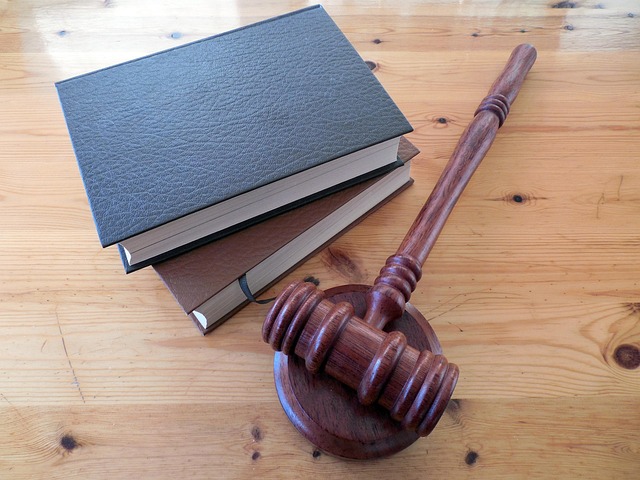Co-ownership property disputes, complicated by financial crimes, demand strategic legal counsel. Victims of fraud have multiple options, including civil lawsuits and criminal complaints, requiring meticulous documentation and evidence. Consulting a specialized attorney is crucial for navigating these complex scenarios, holding perpetrators accountable, recovering losses, and deterring future fraud. Understanding real-world case studies can help individuals recognize warning signs of co-ownership property disputes and white-collar crimes, protecting themselves from economic losses.
“In the intricate web of financial transactions, fraudulent practices pose a significant threat, especially within co-ownership property disputes. This article delves into the legal framework surrounding these malicious actions and explores the rights of victims. We examine ‘Co-Ownership Property Disputes’ as a gateway to understanding common frauds, with a focus on the legal options available. From real-world case studies to the latest legislative measures, this comprehensive guide aims to equip readers with knowledge, particularly regarding ‘Legal Options Available to Victims’ of fraudulent financial practices.”
- Understanding Co-Ownership Property Disputes
- Legal Framework for Fraudulent Financial Practices
- Exploring Legal Options Available to Victims
- Case Studies and Real-World Examples
Understanding Co-Ownership Property Disputes

Co-ownership property disputes often arise in complex financial scenarios, particularly when dealing with white collar and economic crimes. These cases can be intricate, involving multiple parties and a web of transactions, making it crucial to understand the legal options available. When co-owners disagree on the management, distribution, or sale of property, it may lead to prolonged legal battles. Engaging experienced legal counsel who can navigate these disputes is essential for achieving favorable outcomes, especially in securing winning challenging defense verdicts throughout all stages of the investigative and enforcement process.
The resolution of such disputes often requires a deep analysis of contracts, partnership agreements, and relevant laws. Legal strategies may include mediation, arbitration, or litigation, each with its own set of benefits and drawbacks. Skilled attorneys can help clients explore alternative dispute resolution methods to avoid lengthy court battles, while also preparing robust legal defenses should the matter proceed to trial. Understanding one’s rights and obligations in a co-ownership property dispute is paramount in safeguarding one’s interests.
Legal Framework for Fraudulent Financial Practices

In the context of fraudulent financial practices, understanding the legal framework is paramount for both victims seeking justice and professionals aiming to prevent such misconduct. The legal landscape surrounding these issues varies by jurisdiction but typically involves a complex interplay of civil and criminal laws. When co-ownership property disputes arise from fraud, the affected parties have several legal options at their disposal. These may include civil lawsuits to recover losses, criminal complaints for prosecution, or both. Achieving extraordinary results in such cases often hinges on meticulous documentation, forensic accounting, and the presentation of compelling evidence in court.
The role of lawyers is critical in navigating these disputes, whether through mediation, arbitration, or jury trials. They guide corporate and individual clients alike, ensuring their rights are protected and that they receive fair compensation if found eligible. Key legal instruments such as fraudulently obtained contracts, financial statements, and correspondence can be instrumental in building a strong case. Ultimately, the success of these legal options rests on the strength of evidence and the expertise employed to interpret and present it.
Exploring Legal Options Available to Victims

When navigating a co-ownership property dispute involving fraudulent financial practices, victims have several legal options available to them. The first step is often to consult with an attorney specializing in white collar and economic crimes. These professionals can guide individuals through all stages of the investigative and enforcement process, ensuring their rights are protected.
Depending on the specific circumstances, victims might seek criminal charges against the perpetrator, civil lawsuits for compensation, or both. A well-informed strategy is crucial to recovering losses and preventing further fraud. The goal is to hold accountable those responsible for fraudulent financial practices while seeking justice and restitution for affected parties.
Case Studies and Real-World Examples

Fraudulent financial practices can manifest in various ways, and understanding them through real-world examples is crucial. Case studies often reveal complex scenarios where individuals or entities engage in deceptive activities, such as co-ownership property disputes. For instance, a situation might arise where two business partners, initially appearing to have a harmonious relationship, find themselves embroiled in a legal battle over the ownership of a valuable asset. This dispute can expose hidden intentions and questionable transactions, leading to investigations into potential fraud.
These cases highlight the importance of knowing one’s legal options when faced with suspected fraudulent behavior. The pursuit of justice in such matters often involves navigating intricate laws related to co-ownership, contracts, and white-collar crimes. By examining these examples, individuals can learn to recognize warning signs and take proactive steps to protect themselves from economic losses and potential indictment for participating in such illicit activities.
Fraudulent financial practices can have devastating consequences, especially in co-ownership property disputes. Understanding the legal framework surrounding these actions is key to navigating the complexities of such cases. By exploring available legal options, victims can seek justice and recover losses. Case studies illustrate that proactive measures and a solid grasp of one’s rights are essential tools for resolving co-ownership property disputes fairly and ensuring individuals are protected from fraudulent financial schemes.






